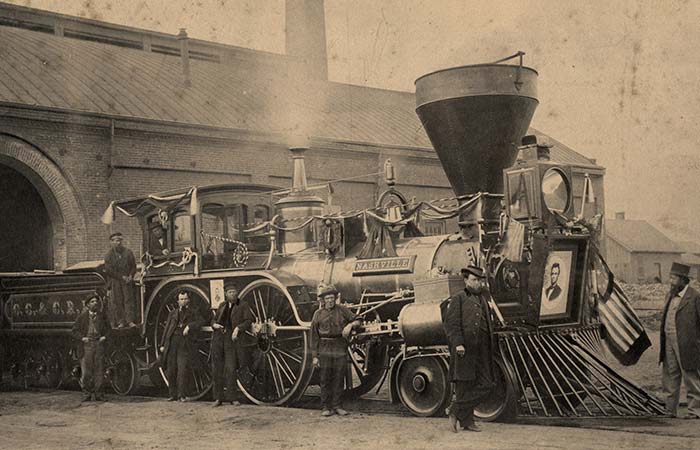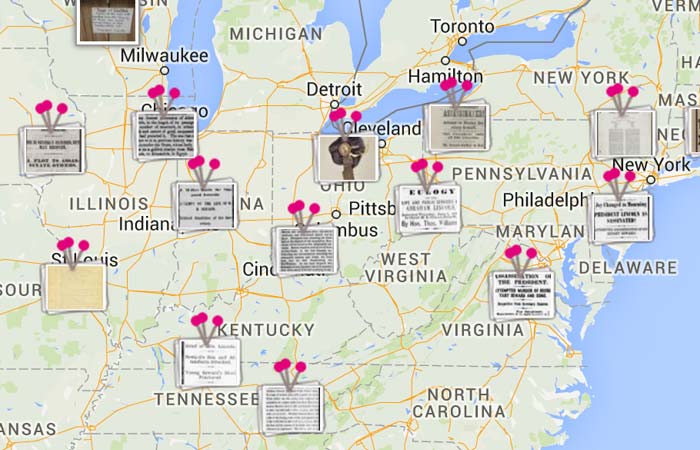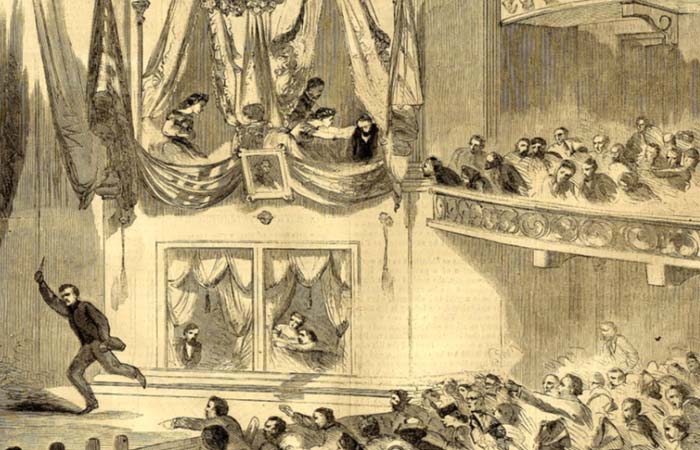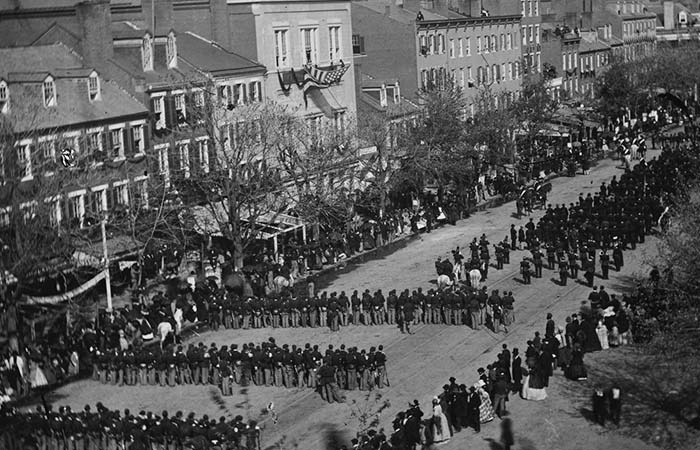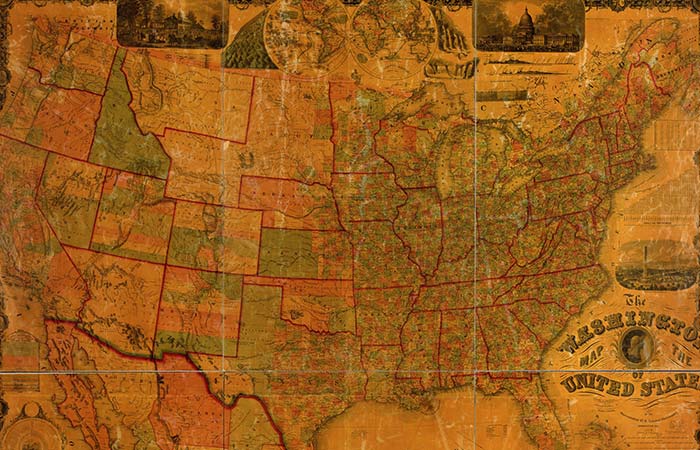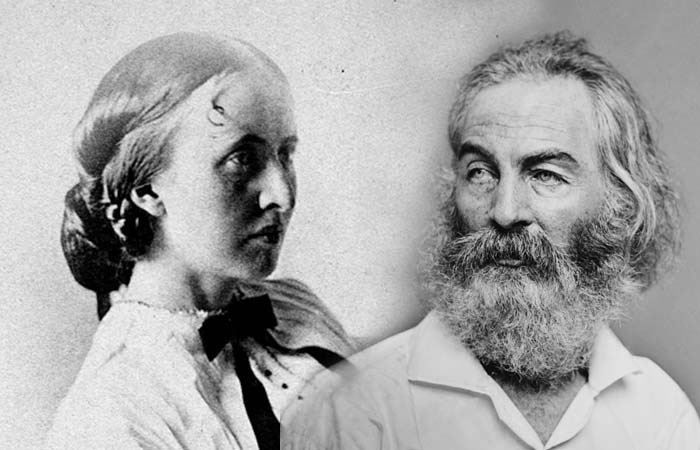from Apr. 26, 1866
Proceedings of the General Conference of the M. E. Church, South
-
Full Title
Proceedings of the General Conference of the M. E. Church, South, Convened at New Orleans, April 4, 1866
-
Description
Southern Christian Advocate, Macon, Ga., front page, column 4, April 27, 1866, one year after the assassination, contains an exchange at the general meeting of the southern Methodist Church, protesting statements made at meetings of the American Bible Society that Southerners were to blame for Lincoln’s death.
-
Source
University of Florida
-
Rights
This item is presumed to be in the public domain. The University of Florida George A. Smathers Libraries respect the intellectual property rights of others and do not claim any copyright interest in this item. Users of this work have responsibility for determining copyright status prior to reusing, publishing or reproducing this item for purposes other than what is allowed by fair use or other copyright exemptions. Any reuse of this item in excess of fair use or other copyright exemptions may require permission of the copyright holder. The Smathers Libraries would like to learn more about this item and invite individuals or organizations to contact Digital Services (UFDC@uflib.ufl.edu) with any additional information they can provide.
-
Tags
-
Cite this Item
Southern Christian advocate. "Proceedings of the General Conference of the M. E. Church, South, Convened at New Orleans, April 4, 1866". J.W. Burke & Co.. Remembering Lincoln. Web. Accessed October 3, 2025. https://rememberinglincoln.fords.org/node/375
from Apr. 26, 1866
Proceedings of the General Conference of the M. E. Church, South, Convened at New Orleans, April 4, 1866
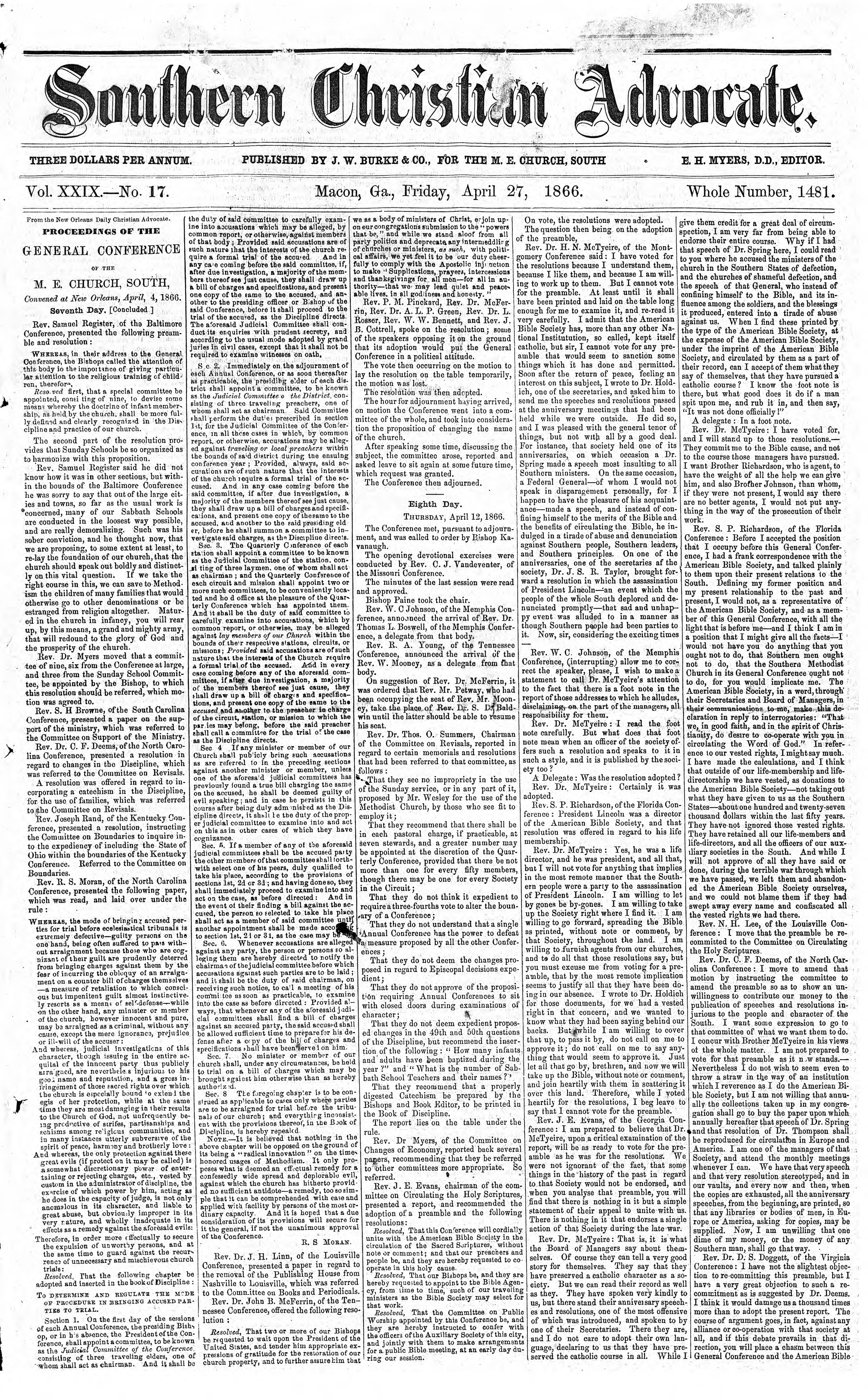
-
Description
Southern Christian Advocate, Macon, Ga., front page, column 4, April 27, 1866, one year after the assassination, contains an exchange at the general meeting of the southern Methodist Church, protesting statements made at meetings of the American Bible Society that Southerners were to blame for Lincoln’s death.
-
Source
University of Florida
-
Rights
This item is presumed to be in the public domain. The University of Florida George A. Smathers Libraries respect the intellectual property rights of others and do not claim any copyright interest in this item. Users of this work have responsibility for determining copyright status prior to reusing, publishing or reproducing this item for purposes other than what is allowed by fair use or other copyright exemptions. Any reuse of this item in excess of fair use or other copyright exemptions may require permission of the copyright holder. The Smathers Libraries would like to learn more about this item and invite individuals or organizations to contact Digital Services (UFDC@uflib.ufl.edu) with any additional information they can provide.
-
Creator
Southern Christian advocate
-
Publisher
J.W. Burke & Co.
-
Date
April 26, 1866
-
Material
Newspaper
from Aug. 31, 1865
The Erie Resolutions
-
Full Title
The Erie Resolutions
-
Description
Southern Christian Advocate, Macon, Ga., August 31, 1865, p. 3, column 1, the pronouncement of the Methodist Church in the North regarding the death of Lincoln, with the reaction of Southern Methodists.
-
Source
University of Florida
-
Rights
This item is presumed to be in the public domain. The University of Florida George A. Smathers Libraries respect the intellectual property rights of others and do not claim any copyright interest in this item. Users of this work have responsibility for determining copyright status prior to reusing, publishing or reproducing this item for purposes other than what is allowed by fair use or other copyright exemptions. Any reuse of this item in excess of fair use or other copyright exemptions may require permission of the copyright holder. The Smathers Libraries would like to learn more about this item and invite individuals or organizations to contact Digital Services (UFDC@uflib.ufl.edu) with any additional information they can provide.
-
Tags
-
Cite this Item
Southern Christian advocate. "The Erie Resolutions". J.W. Burke & Co.. Remembering Lincoln. Web. Accessed October 3, 2025. https://rememberinglincoln.fords.org/node/374
from Aug. 31, 1865
The Erie Resolutions

-
Description
Southern Christian Advocate, Macon, Ga., August 31, 1865, p. 3, column 1, the pronouncement of the Methodist Church in the North regarding the death of Lincoln, with the reaction of Southern Methodists.
-
Source
University of Florida
-
Rights
This item is presumed to be in the public domain. The University of Florida George A. Smathers Libraries respect the intellectual property rights of others and do not claim any copyright interest in this item. Users of this work have responsibility for determining copyright status prior to reusing, publishing or reproducing this item for purposes other than what is allowed by fair use or other copyright exemptions. Any reuse of this item in excess of fair use or other copyright exemptions may require permission of the copyright holder. The Smathers Libraries would like to learn more about this item and invite individuals or organizations to contact Digital Services (UFDC@uflib.ufl.edu) with any additional information they can provide.
-
Creator
Southern Christian advocate
-
Publisher
J.W. Burke & Co.
-
Date
August 31, 1865
-
Material
Newspaper
from Apr. 15, 1865
Otis Keene Diary, April 15, 1865
-
Full Title
Otis Keene Diary, April 15, 1865
-
Description
Manuscript item from “Pioneer Days in Florida,” the Otis Keene diary of 1865, April 15 to April 27, which reported the assassination, the funeral procession, the hunt for Booth, etc. Diary, correspondence. These diaries (1863-1894, 1903-1910) contain Keene's often terse entries about his daily routines from 1863, when he resided in Washington, D.C., through his years as a citizen of Jacksonville, Florida. They include his reaction to the assassination of President Abraham Lincoln. Unfortunately, the diaries do not cover the crucial Florida years of 1898 (Spanish-American War) and 1901 (Great Jacksonville Fire) but remain important as a local chronicle.
-
Source
University of Florida
-
Rights
This item is presumed to be in the public domain. The University of Florida George A. Smathers Libraries respect the intellectual property rights of others and do not claim any copyright interest in this item. Users of this work have responsibility for determining copyright status prior to reusing, publishing or reproducing this item for purposes other than what is allowed by fair use or other copyright exemptions. Any reuse of this item in excess of fair use or other copyright exemptions may require permission of the copyright holder. The Smathers Libraries would like to learn more about this item and invite individuals or organizations to contact Digital Services (UFDC@uflib.ufl.edu) with any additional information they can provide.
-
Tags
-
Cite this Item
Keene, Otis L., 1830-. "Otis Keene Diary, April 15, 1865". Remembering Lincoln. Web. Accessed October 3, 2025. https://rememberinglincoln.fords.org/node/373
from Apr. 15, 1865
Otis Keene Diary, April 15, 1865

-
Description
Manuscript item from “Pioneer Days in Florida,” the Otis Keene diary of 1865, April 15 to April 27, which reported the assassination, the funeral procession, the hunt for Booth, etc. Diary, correspondence. These diaries (1863-1894, 1903-1910) contain Keene's often terse entries about his daily routines from 1863, when he resided in Washington, D.C., through his years as a citizen of Jacksonville, Florida. They include his reaction to the assassination of President Abraham Lincoln. Unfortunately, the diaries do not cover the crucial Florida years of 1898 (Spanish-American War) and 1901 (Great Jacksonville Fire) but remain important as a local chronicle.
-
Source
University of Florida
-
Rights
This item is presumed to be in the public domain. The University of Florida George A. Smathers Libraries respect the intellectual property rights of others and do not claim any copyright interest in this item. Users of this work have responsibility for determining copyright status prior to reusing, publishing or reproducing this item for purposes other than what is allowed by fair use or other copyright exemptions. Any reuse of this item in excess of fair use or other copyright exemptions may require permission of the copyright holder. The Smathers Libraries would like to learn more about this item and invite individuals or organizations to contact Digital Services (UFDC@uflib.ufl.edu) with any additional information they can provide.
-
Creator
Keene, Otis L., 1830-
-
Date
April 15, 1865
-
Material
Diary
Lincoln Funeral Train
Introduction
The Lincoln Funeral Train lesson module will take place over the course of 3 to 4 class periods. Throughout the module, students will integrate technology use and historic research into a cohesive presentation. The crux of the research will be primary source document analysis. Aspects of spatial reasoning and mapping skills are woven into the lesson – using the trajectory of the Lincoln Funeral Train.This module has aspects that align with a project based approach. It engages students with the material and each other. Small groups will conduct the research, mapping, and present their findings as a unit. There is a consistent emphasis on finding a contemporary connection to the events surrounding the Lincoln Funeral Train.
Guiding Questions
- Why did Lincoln’s Funeral Train take its specific route?
- How did cities along that route react to his funeral? What did they do?
- How do other forms of media (art, music) depict the funeral train?
Objectives
- Students will collaboratively generate a detailed map of the Lincoln Funeral Train
- Students, in small groups, will present research on primary source documents
- Students will conduct rigorous research on a variety of primary source documents
- Students will understand and communicate the impact that Lincoln’s death had on the country
- Students will develop/reinforce an understanding of mapping skills
- Students will be able to see connection between Social Studies and STEM subject areas
Standards
- National Council of Social Studies’ C3 Framework for Social Studies State Standards (D2.Geo.1.9-12, D2.His.5.9-12, D2.His.16.9-12)
- NCSS National Curriculum Standards for Social Studies (People, Places & Environments; Time, Continuity & Change)
- Common Core: CCSS.ELA_LITERACY.RH.9-10.1
- Common Core: RH.9-10.6
- National Council of Teachers of Mathematics (1.3.1)
Procedure
- Students learn about the route Lincoln’s Funeral Train took
Lesson Activity Two: Small Groups, Distance, and Reactions
- Students research databases for pictures and news articles in assigned cities along the funeral train route
Lesson Activity Three: Presentations and “The Lonely Train:
- Groups present their research to the class and afterwards, the class will compare their research to the song, “The Lonesome Train.”
Read More »
Materials
- Introduction (.pdf)
- Unit Plan & Activities (.pdf)
-
Grade Level
9 to 12
-
Timeframe
2 to 3 classes (45 min/period)
-
Class Subject
History
-
Skills
Primary Sources
-
Teacher Information
Kevin Wagner
Carlisle High School
9, 11, 12
U.S. History (College Prep), Advanced Placement U.S. History
Lincoln Funeral
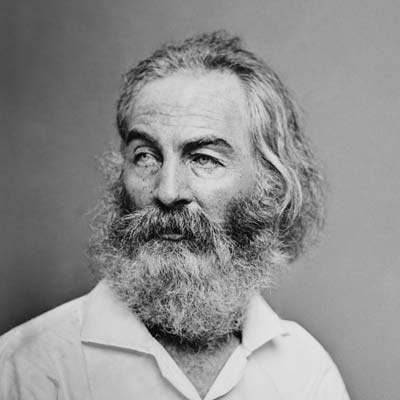
Walt Whitman
Many students read “Oh Captain, My Captain”—but often don’t realize that Walt Whitman composed that poem to capture his emotions at hearing of President Lincoln’s assassination. Whitman, already a famous poet, served as a volunteer nurse in Washington, seeing the horrors of war firsthand as he tended to wounded soldiers.

Sarah Gooll Putnam
As an adult, Sarah Gooll Putnam made a living as a portraitist. One of her earliest works appears in her April 15, 1865, diary entry, when she was 13 or 14. She depicted the look on her face when she learned of Lincoln’s death from her father in Boston.
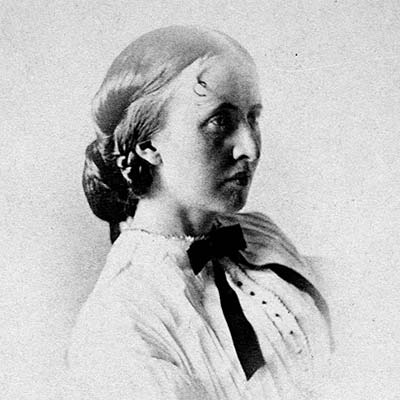
Mary Henry
Mary Henry literally observed Washington from a castle. The daughter of the Smithsonian’s Secretary, Joseph Henry, Mary kept a diary during the Civil War. She succinctly captured how Washingtonians moved from joy at the end of the war to mourning the slain president.

Moses Many Lightning Face
At the close of the Dakota War of 1862, Lincoln suspended, but did not commute, the death sentences of all but 38 condemned Dakota soldiers. On December 26, 1862, the 38 lost their lives in the largest mass hanging in U.S. history. Federal troops transported the spared Dakota soldiers out of state. When Moses Many Lightning Face, imprisoned near Davenport, Iowa, learned of Lincoln’s assassination, he wondered what would happen next.
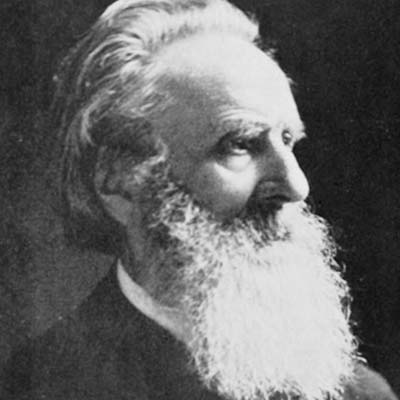
Johannes Oertel
Johannes Oertel lived an eclectic life. Born in Bavaria (now part of Germany), he immigrated to the United States in 1848. He worked as an artist and became an Episcopal minister in 1867. His 1865 diary demonstrates his religiosity.

Mary Sheehan Ronan
As a child, Mary Sheehan settled in Virginia City, Montana, with her family. That mining boomtown had originally been named Varina, for the wife of Confederate President Jefferson Davis, because of the strong Confederate sympathies of its inhabitants. So it is perhaps not a surprise that Sheehan reported dancing among children as they learned of Lincoln’s assassination.

Emilie Davis
A free African-American woman in Philadelphia, Davis recorded her experiences in a diary between 1863 and 1865. This diary is a valuable resource for understanding the lives of free African Americans in the North during this time. Davis’s recollections of the Lincoln funeral in Philadelphia tell of both official and unofficial events.
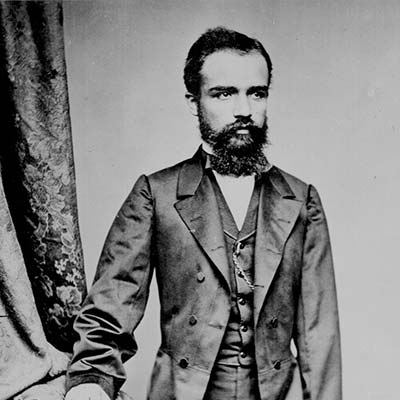
Matias Romero
Matias Romero represented Mexico’s Liberal government in the United States, seeking aid for his cause’s fight against Mexican monarchists supported by French invaders. Romero’s letters to Mexico’s leaders show his expectations for the course of U.S. policy toward his country under President Andrew Johnson.

Dudley Avery
The Avery family owned Petite Anse Island plantation in southwestern Louisiana, which included a salt mine. Dudley Avery, son of plantation owner Daniel D. Avery, served as a soldier in the Confederate Army. He eventually returned to the family's plantation, where he was when he learned of the Lincoln assassination. In a letter to his father, Dudley Avery feared that President Andrew Johnson would take a harsh stance toward former rebels, and expressed his belief in Lincoln’s magnanimity. Avery’s brother-in-law later developed Tabasco sauce at the plantation.
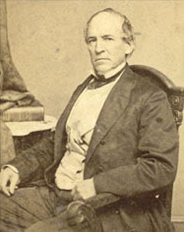
Horatio Nelson Taft
A U.S. Patent Office examiner, Taft kept a diary during his time living in Washington during the Civil War. His son, Charles Sabin Taft, was among the doctors who attended the wounded president. Taft’s diary provides one of the most compelling firsthand accounts of the scene in Washington after the assassination.
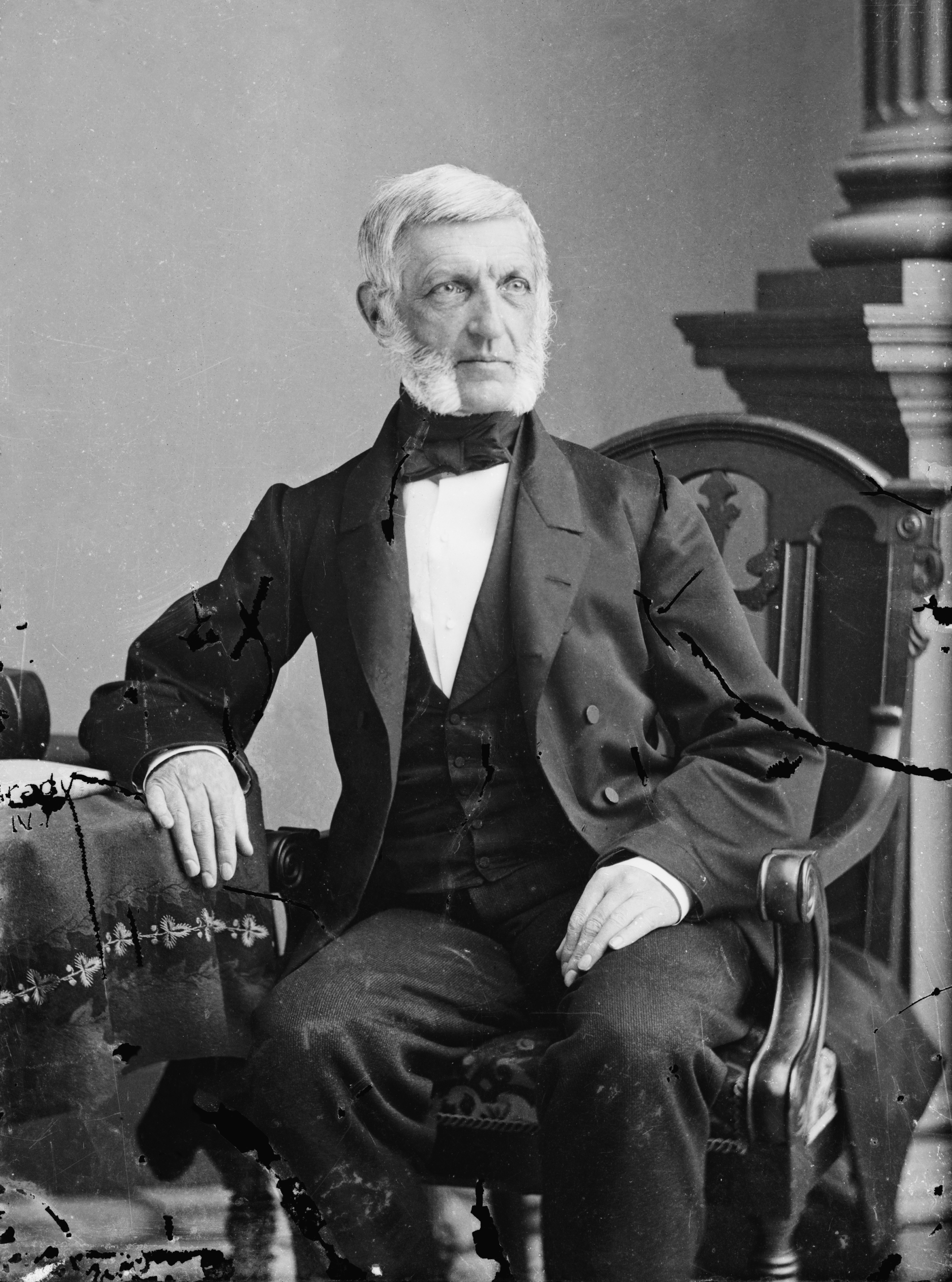
George Bancroft
An American historian and statesman, George Bancroft is best known for creating the United States Naval Academy while serving as Secretary of the Navy under President James K. Polk. He also wrote several historical works. In 1866, Congress asked Bancroft to deliver a eulogy in honor of Abraham Lincoln. Not everyone liked it.
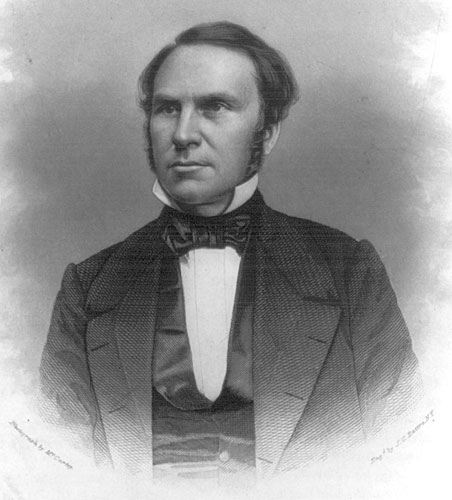
Dr. Phineas D. Gurley
Dr. Phineas D. Gurley was pastor of New York Presbyterian Church in Washington, D.C. and Chaplain of the United States Senate during presidency of Abraham Lincoln. President Lincoln and First Lady Mary Lincoln regularly attended the church. Dr. Gurley was present at Lincoln’s deathbed and preached the funeral sermon at the White House on April 19, 1865.

Abigail M. Brooks
Abigail M. Brook (also known as Abbie Lindley) was a rural Tennessee school teacher in the 1860s. During the Civil War, she taught in a one room schoolhouse and made money on the side by selling religious texts, maps, and Civil War photos. Her 1865 diary provides detailed descriptions of rural life, the fall of Richmond, General Lee’s surrender, and the assassination of Abraham Lincoln.
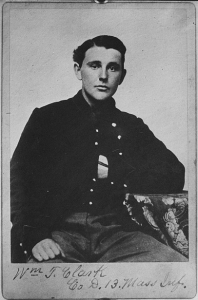
Willie Clark
Willie Clark was a boarder at the Petersen Boarding House in April 1865. He was out the night of April 14, making his bed available for the dying President Lincoln. Clark’s letter to his sister describes Lincoln’s funeral preparations and the constant influx of souvenir hunters into his room.
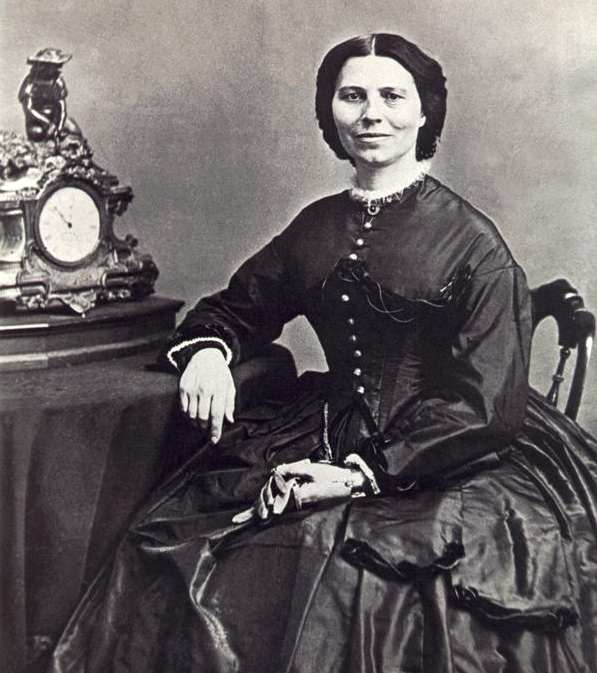
Clara Barton
Clara Barton is best known for founding the Red Cross. During the Civil War, she was the director of the Missing Soldiers Office. The Missing Soldiers Office, just three blocks from Ford’s Theatre in downtown Washington, D.C., helped families get information on their loved ones. Barton recorded the assassination of Abraham Lincoln and his funeral in her diary.
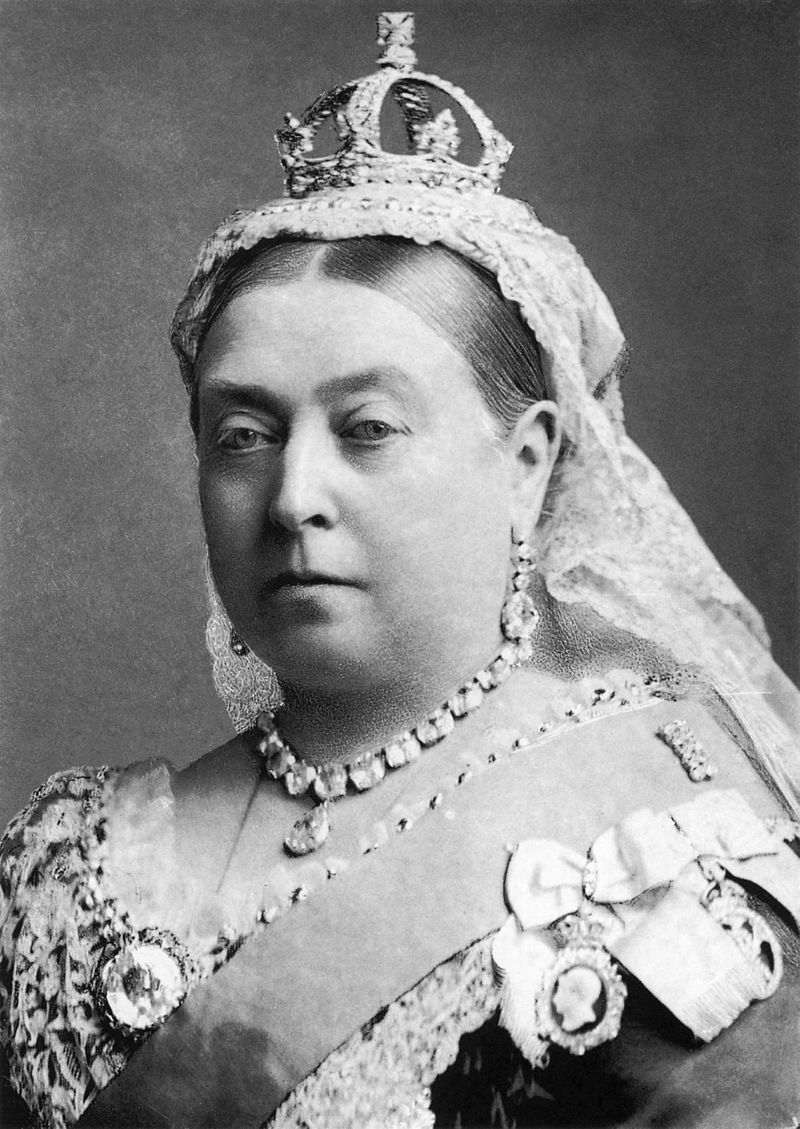
Queen Victoria
Queen Victoria was British monarch from 1837 until 1901. In 1861, Victoria went into deep mourning after her husband Prince Albert died. In a letter to First Lady Mary Lincoln, Victoria expressed the connection she felt after they both lost their husbands. Though the women never met, they shared a brief correspondence.
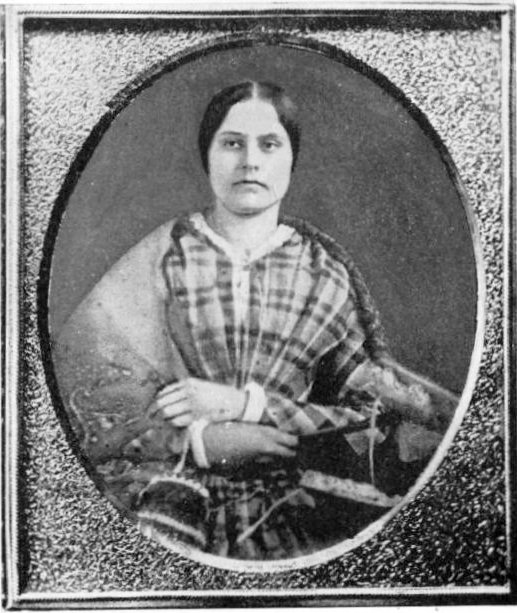
Susan B. Anthony
Susan B. Anthony is best known as a women’s rights activist and suffragette. During the 1860s, she was heavily involved in the anti-slavery movement. She helped start the Women’s Loyal National League in 1863 which advocated for the abolition of slavery. She wrote about Lincoln’s assassination in a diary she kept during the Civil War.
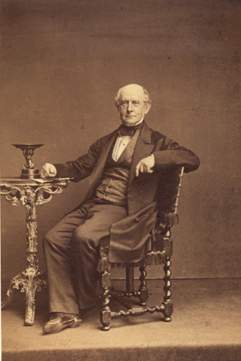
Charles Frances Adams
The son and grandson of presidents, Charles Francis Adams served as the United States Minister to the United Kingdom under President Abraham Lincoln. He was instrumental in keeping Great Britain neutral during the U.S. Civil War. Adams received and wrote many dispatches to Secretary of War Stanton and acting Secretary of State William Hunter about Lincoln’s assassination and funeral.
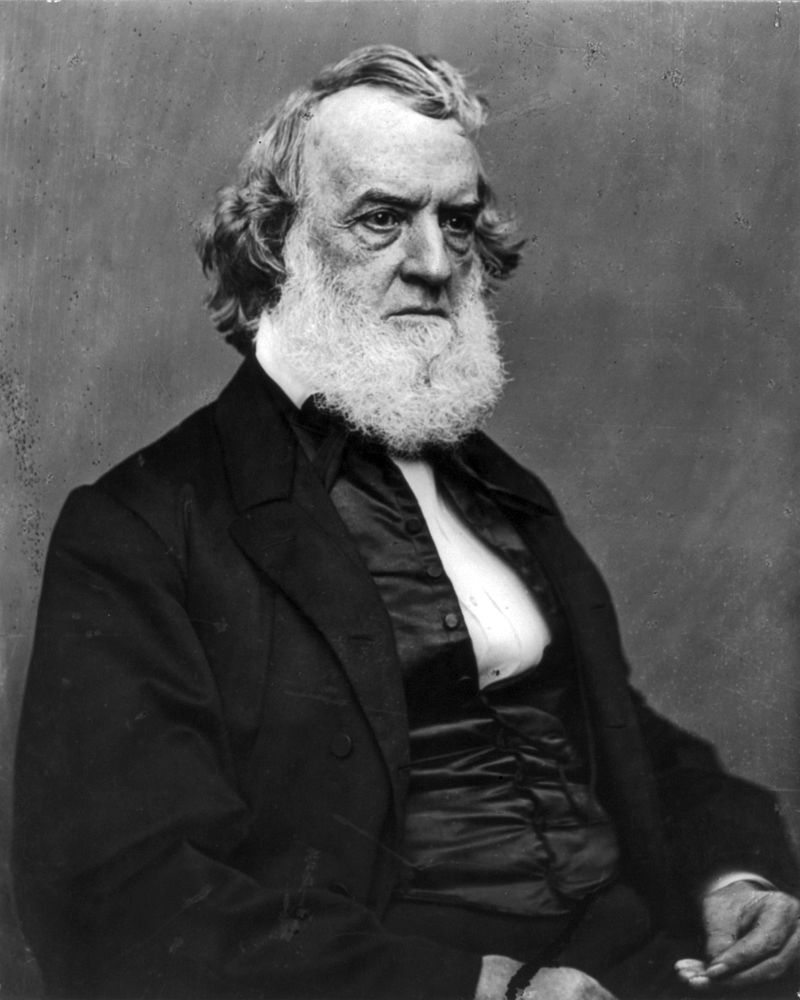
Gideon Welles
Gideon Welles was Secretary of the Navy from 1861 to 1869 under Presidents Abraham Lincoln and Andrew Johnson. After retiring from politics, he wrote Lincoln and Seward in 1874. Many telegrams to and from Welles appear in Remembering Lincoln, detailing the assassination of Lincoln and the manhunt for John Wilkes Booth.
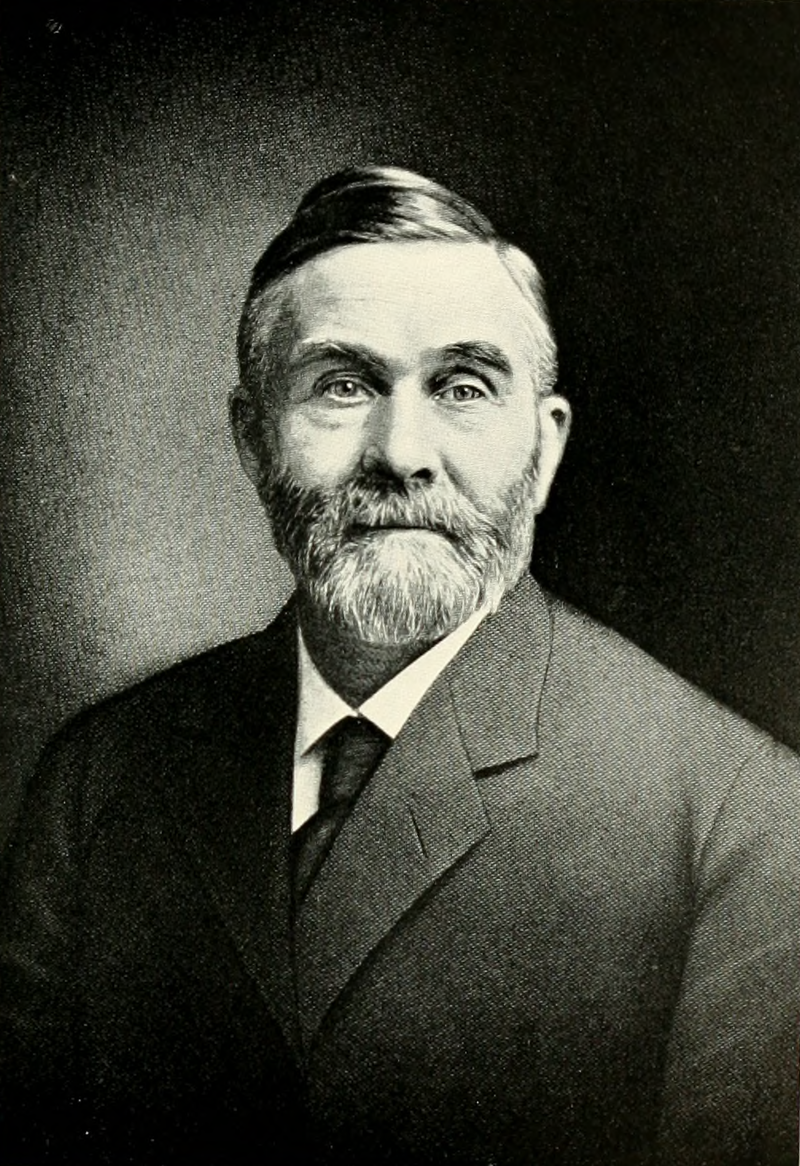
George Himes
George Himes lived in Portland, Oregon, working as a printer and journalist throughout his life. From the age of 14 until his death at 95, Himes kept a constant journal of his daily activities. In 1865, Himes recorded his reaction to the Lincoln assassination and the process of creating a special edition newspaper about the event. He eventually helped found the Oregon Historical Society.
Use this timeline to learn about those important days that shaped the country's reunification after the Civil War. Learn what else was happening on the date of a given response. How did the circumstances of the day influence how that person responded?
President Abraham Lincoln’s assassination on April 14, 1865, shocked the nation. One week before, the Confederacy’s largest army had surrendered. Americans looked to the postwar future with a wide array of hopes and fears. Then came the assassination. Public reaction to Lincoln’s assassination varied widely. Some grieved. Some fretted over the future. A few celebrated. One hundred fifty years later, what can we learn from the reactions and reflections of citizens from across the nation, and even around the world?
from Apr. 19, 1865
Johannes Oertel Diary
-
Full Title
Johannes Oertel Diary
-
Description
Johannes Oertel, a minister who later became an artist, wrote about his feelings on the assassination of President Abraham Lincoln five days before.
-
Transcription
Wednesday, April 19, 1865
Most memorable day! A day of mourning and lamentation! A continent in tears! The Nation weeping, and her foes dismayed and fleeing in disguise and terror! This cursed rebellion has culminated its gigantic atrocities in the foul murder of our great, good, beloved President. The hand of a vile assassin extinguished his precious life last Friday evening, and today over twenty millions of people mourn after his hearse, and swear over his grave by High Heaven a solemn, determined oath, that the black wickedness, which has for four bloody years made our beautiful country old in deeds of carnage and violence, shall be utterly wiped out of existence, and evenhanded Justice have her uninterrupted work with the leaders, who caused such widespread misery.
As the dreadful news of the assassination of Mr. Abr. Lincoln flashed over the thousands of miles of this continent, the nation received a paralysis shock indeed. A feeling of horror and deep gloom spread over the land, and men were struck dumb with awe. All fealt the fearful calamity and felt the national bereavement. We have lost a Father! A great man has fallen. For four years, with a far-seeing, calm and clear mind, steady and unwavering in high principle and sterling integrity, with the purest patriotism and self-sacrifice, an all-embracing love and tender care, patient and untouched by censure or calumny, looking with devout faith and childlike trust to the end, as a merciful Providence would surely protect the right and bring it to victory, he has guided his distressed county in her greatest dangers and perils, has firmly established the principle of universal freedom, subdued the power of her enemies, and raised again, our proud banner upon the ruined walls of that very fortress whence treason struck it down just four years before, and now that the future rose up before his gratified vision, radiant with glory and happiness and strength, and his herkulean labors found a sweet reward, malicious hatred cut him off in the height of his usefulness. The hellish spirit of slavery and treason has done its perfect work--but it has struck the death blow at its own black heart. If there has existed any tendency to forget the depth of its heinous wickedness and to be easy with those men who led in treason and infamy, that tendency has vanished. There never was a more sudden revolution of feeling in the common mind of a whole great nation, as has been effected by the assassination of our lamented President. Treason could have done nothing so destructive of its own ends, so suicidal to its own existence. Both at home and with the whole civilized world it stands now utterly and forever condemned. It has fully revealed its true character, and the reckless, godless barbarity which has indeed marked the conduct of the South throughout this war, the outgrowth and legitimate consequence of that revolting inhuman system of slavery. But thank God! Henceforth our flag must wave over a country undivided and free, where no cruel lash drives a human chattel to their unwilling work; where no being created immortal and redeemed by the blood of Jesus Christ is bought and bartered away for money; where no wanton outrage can under the sanction of law trample under foot the ties of marriage and family relations; where education can no more be made a penal offence; where life is held sacred; where a man can travel from Maine to Florida and to the far Pacific without carrying revolver and knife; where, within the bounds of reason and law, he can utter his sentiments without fear and restraint; where on every foot of it he can truly feel that it is his fatherland, belonging to him and every citizen from one end to the other throughout its vast extent; where he has the right of a freeman, the protection of the law, the consciousness of security, and a just pride in a great country and a superior form of government, that has stood the fiery trial of an unparalleled insurrection most victoriously and approved itself more worthy of the confidence of all mankind, and the respect of foreign powers, than ever before it was so severely tried.
And to this end President Abraham Lincoln has contributed more than any other man. Be has established freedom, and has died its martyr. He lived for a great, noble principle, and died for it. His death is the seal of Liberty. Be is our Martyr-President. The grateful heart of the nation will hold his name most dear and all future history will call him the Great and the Good. His name is enshrined in sacred memory in the hearts of the poor, the oppressed, and down-trodden, whose father and liberator he emphatically has been, and wherever and whenever, the crushing out of the system of human slavery upon the soil of these United States is mentioned, by word or print, there will be associated with it inseperably and most favorably the venerated, beloved name of Abraham · Lincoln, the great Liberator, and martyr of freedom!
The Nation has prayed to day, and is praying, that the mercyful and almighty God, our ruler and our guide may impart wisdom, and strength, and firmness to his successor, Mr. Andrew Johnson, and make him a willing and fit instrument in His Land to do His heavenly will, and lead this people through the mazes of difficulties which yet surround us on every side, to peace, and justice, and happiness, in the fear of God, to His honor and glory, Amen.
-
Source
The Leo Pascal Collection
-
Rights
This item may be reproduced and used for any purpose, including research, teaching, private study, publication, broadcast or commercial use, with proper citation and attribution.
-
Tags
-
Cite this Item
Johannes Oertel. "Johannes Oertel Diary". Remembering Lincoln. Web. Accessed October 3, 2025. https://rememberinglincoln.fords.org/node/365
-
Creator
Johannes Oertel
-
Date
April 19, 1865
from Apr. 19, 1865
Johannes Oertel Diary
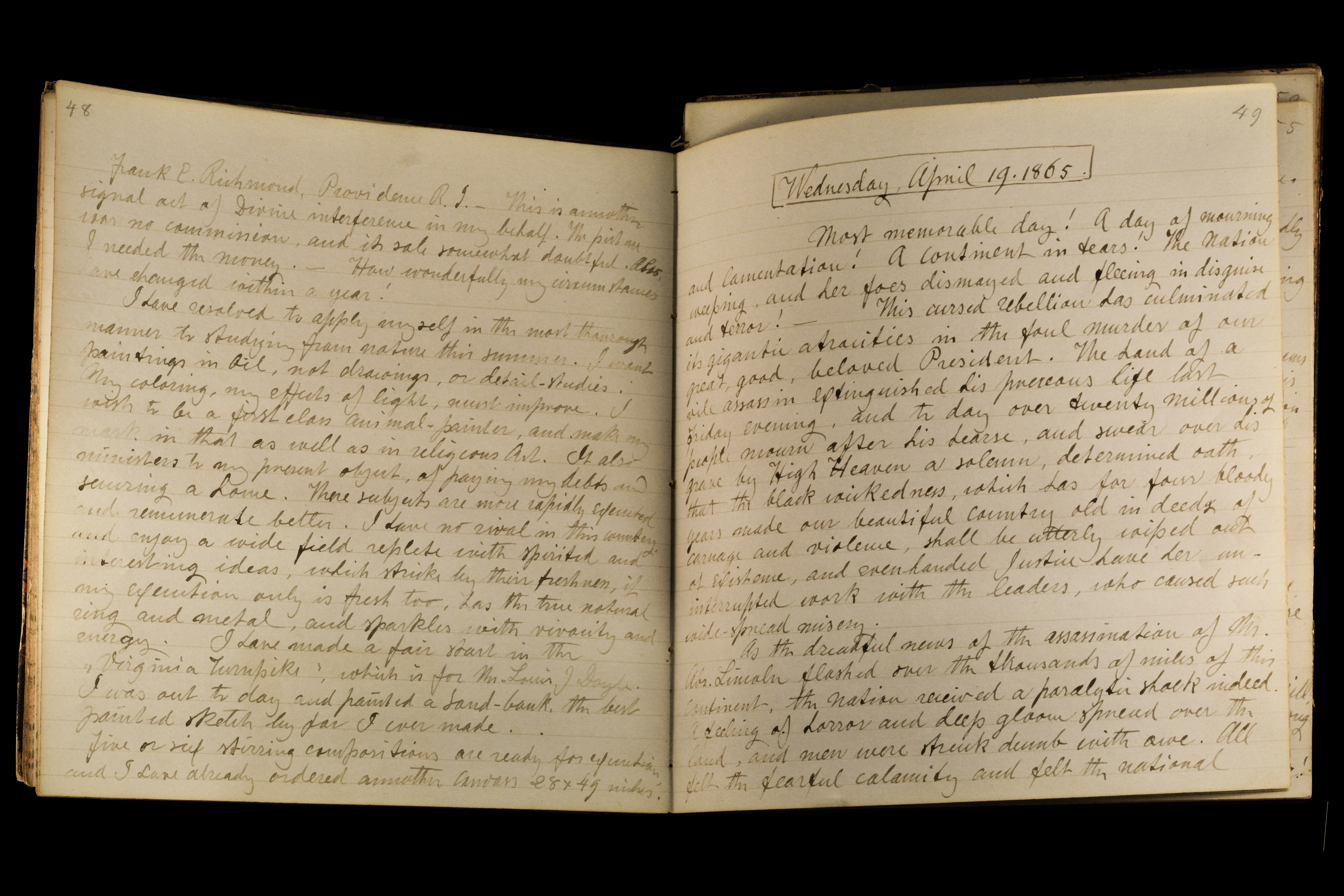
-
Description
Johannes Oertel, a minister who later became an artist, wrote about his feelings on the assassination of President Abraham Lincoln five days before.
-
Source
The Leo Pascal Collection
-
Rights
This item may be reproduced and used for any purpose, including research, teaching, private study, publication, broadcast or commercial use, with proper citation and attribution.
-
Creator
Johannes Oertel
-
Date
April 19, 1865

